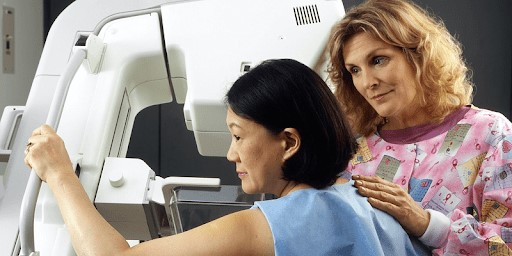Esophageal Cancer: Understanding its Signs and Symptoms
Oct 18, 2023 By Madison Evans
Esophageal cancer is a fast-spreading type of cancer that, when caught early, can be treated and managed more effectively. While the very thought of this disease may cause panic and fear amongst patients, understanding its signs and symptoms may aid in early identification so an appropriate course of treatment can begin. If you or someone close to you has noticed worrying changes such as difficulty swallowing or stomach pain, it’s essential to visit your doctor for a full assessment. Read on to find out more useful information about esophageal cancer - from the common causes and signs/symptoms associated with it to possible treatments available.
What is Esophageal Cancer?
Esophageal cancer is a form of cancer that affects the esophagus - a long, hollow tube in the neck and chest that carries food from your throat down to the stomach. This type of cancer starts in the innermost layer of cells that line the esophagus wall. As it progresses, it can spread through other layers and move into nearby tissues and organs.
Types:
The two main types of esophageal cancer,
Squamous cell carcinoma: which affects the thin, flat cells in the inner part of the esophagus?
Adenocarcinoma: which affects the glandular cells in the lower part of the esophagus that produces mucus? This type of cancer is more common in the United States.
Causes:

There are several possible causes of esophageal cancer. The most common is long-term irritation of the lining of the esophagus from conditions such as gastroesophageal reflux disease (GERD). Other causes include smoking, alcohol consumption, obesity and certain viruses (such as HPV).
Signs and Symptoms:
Common signs and symptoms of esophageal cancer include,
- Difficulty swallowing (dysphagia)
- Heartburn or indigestion
- Chest pain
- Unexplained weight loss
- Vomiting
- Coughing up blood
- Hoarseness
- Bad breath
Diagnosis and Testing
If you experience any of the symptoms mentioned above, it’s important to visit your doctor for a full assessment. The diagnosis and testing process typically includes an endoscopy.
Common diagnostic tests for esophageal cancer include:
- Endoscopy: a thin, flexible tube with a tiny camera on the end is inserted into your throat to examine the inside of your esophagus. This test can help identify abnormal cells or tumor growth.
- Biopsy: If anything looks suspicious during the endoscopy, your doctor may take a tissue sample (biopsy) to test for cancer.
- Imaging tests: such as X-rays, CT scans and MRI scans can help your doctor get a better understanding of the size and location of the tumor.
Treatment and Management
The treatment and management of esophageal cancer depends on the stage and type of cancer, as well as your age and overall health.
Conventional treatments

- Surgery: This is usually the first line of treatment for esophageal cancer. The surgeon will remove the tumor and some healthy tissue around it to make sure all the cancer cells have been removed.
- Chemotherapy: Often done after surgery, this type of treatment uses drugs that are injected into a vein or given by mouth to destroy any remaining cancer cells.
- Radiation therapy: During this treatment, high-energy X-rays are used to kill cancer cells. It can be used as a primary treatment for esophageal cancer or in combination with chemotherapy and surgery.
Alternative treatments
In addition to conventional treatments, there are alternative approaches available such as acupuncture, herbal medicine and nutrition therapy. Before trying any of these treatments it’s important to consult with your doctor to make sure they are safe for you.
Esophageal cancer is a serious condition that should not be taken lightly, but understanding the causes and symptoms can help in the early identification of this disease.
Lifestyle changes and management
Making some lifestyle changes can help reduce your risk of esophageal cancer and improve your overall health. These include:
- quitting smoking and drinking alcohol in moderation (or avoiding it altogether)
- eating a healthy, balanced diet with plenty of fruits and vegetables
- staying active with regular exercise
- maintaining a healthy weight
- managing stress levels
By making these simple changes, you can help reduce your risk of developing this type of cancer and improve your overall well being.
Conclusion
Esophageal cancer is a serious condition that, when caught early, can be treated and managed more effectively. Understanding its causes, signs and symptoms as well as possible treatments are essential in preventing the disease or managing it correctly. However, it’s important to remember that everyone’s experience of esophageal cancer will differ so you should always consult with your doctor or health care provider to determine the best course of action for you. If you experience any worrying symptoms, speak to your doctor as soon as possible and remember that early detection is key.

Can AI-Supported Mammogram Screening Really Help With Detection?

Gym Makeup: Discover the Impact on Your Skin and What to Avoid

Wholesome Snacking: 7 Vegan Recipes to Support Your Weight Loss Journey

The Bacterial Horror of Hot-air Hand Dryers

How Common Is Parkinson’s Disease In Families?

What Makes Manuka Honey So Special? Exploring Its Unique Properties

Skin Tag Vs. Mole: Differences And Similarities


